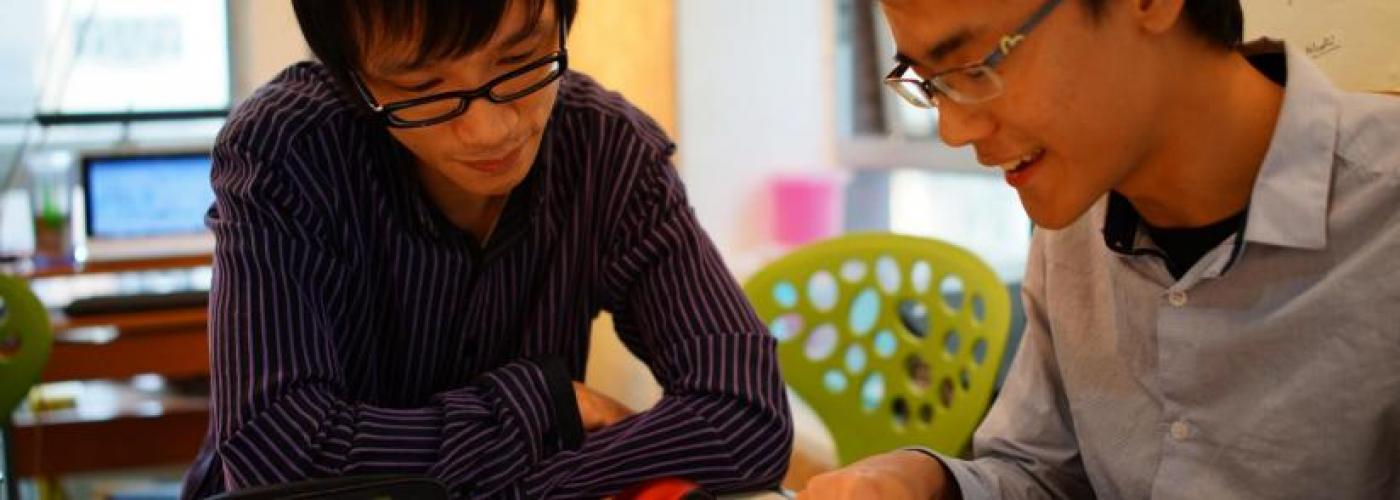Post-Event Questions and Answers: EcoSystem Forum on Building Social Capital
Image

During our most recent webinar, EcoSystem Forum on Building Social Capital, we examined the importance of social capital and how to ensure its positive impact on entrepreneurs. The Ecosystem Forum hosted a joint webinar featuring a panel of entrepreneurship support organizations. The panel included Kathleen Bury, CEO of Mowgli Mentoring, Rob Tashima, VP of Innovation and Mike Ducker, Director of Entrepreneurship Programs for J.E. Austin Associates, and was moderated by Abigayle Davidson, Senior Research Analyst for ANDE. Panellists shared experiences on how they leverage social capital to improve the success of entrepreneurs.
If you missed it, you can watch a recording of the webinar, read the presentation and chat transcripts, and view the slide deck on the event page linked in the sidebar.
Attendees asked several great questions to our panellists, but we didn't have sufficient time to answer them all. In this post, Mike Ducker from J.E. Austin Associates answers a few of the remaining questions.
At the regional level of East Africa: South Sudan need greater input for marketing system can it be possible to a just with productions development?
A good outcome of a good entrepreneurship program is that founders are taking responsibility of their companies and learning how the upmarket systems work their needs and incentives. As a mentor, my most common piece of advice to any entrepreneur, go out and talk to different market actors and find out what their needs are instead of me telling me how those systems work.
How often during programs do mentors and mentees provide feedback to program representative? What follow-up is conducted post-program?
Good programs I’ve seen will help with introductions, provide mentor structure so the entrepreneur and mentor have some rules of engagement (what are they working on, how often they will engage, how they will communicate). A good program might check in fairly quickly after the initial mentor relationships to ensure things are working as I said in the webinar usually the relationship is either great or not great for both parties, not much in between. Most programs will do survey’s after the program is over on the specific mentor relationship and the mentoring activity itself.
Thoughts on discriminatory perceptions/bias that have impacted the mentorship process and, or financing? If so, any remedies to address such?
I’m sure there is at least some bias, have not seen specific discrimination. Some of my personal experience, I’ve been part of focus groups with women entrepreneurs and they see the importance of having women and men mentors. I’ve seen some programs that are not friendly for founders who are parent responsibility, focus on the late-night party like atmosphere that is not great for some groups.
I'm interested in hearing how this moves beyond a USAID-funded project (for example) into a more robust way the entrepreneurship or innovation ecosystem ensures that entrepreneurs are looking for mentors in general. How does mentorship scale?
I find there are private sector champions who have a great amount of success and start mentoring and then push for their business colleagues to the same. For example, very successful entrepreneur Fadi Ghandour from Aramex in Jordan has pushed this concept across the Middle East. Also, the book Startup Communities written by Brad Field about the small city of Boulder Colorado ecosystem is the best reference on the topic I’ve seen.
Scaling - To me this is about culture, how do you create a tipping point where business people feel they must move it forward. I have found when the top entrepreneurs in the region do this, others follow is my experience.
Can anyone provide thoughts on mobile technology's role in the process? Any challenges; and if so, solutions? Successes and impact on projections?
My experience and research have shown to build a relationship, people have to meet in person first to build trust and then it's easier to move relationships online or virtually. Online mentor platforms usually help for one-time encounters and problem-solving.


